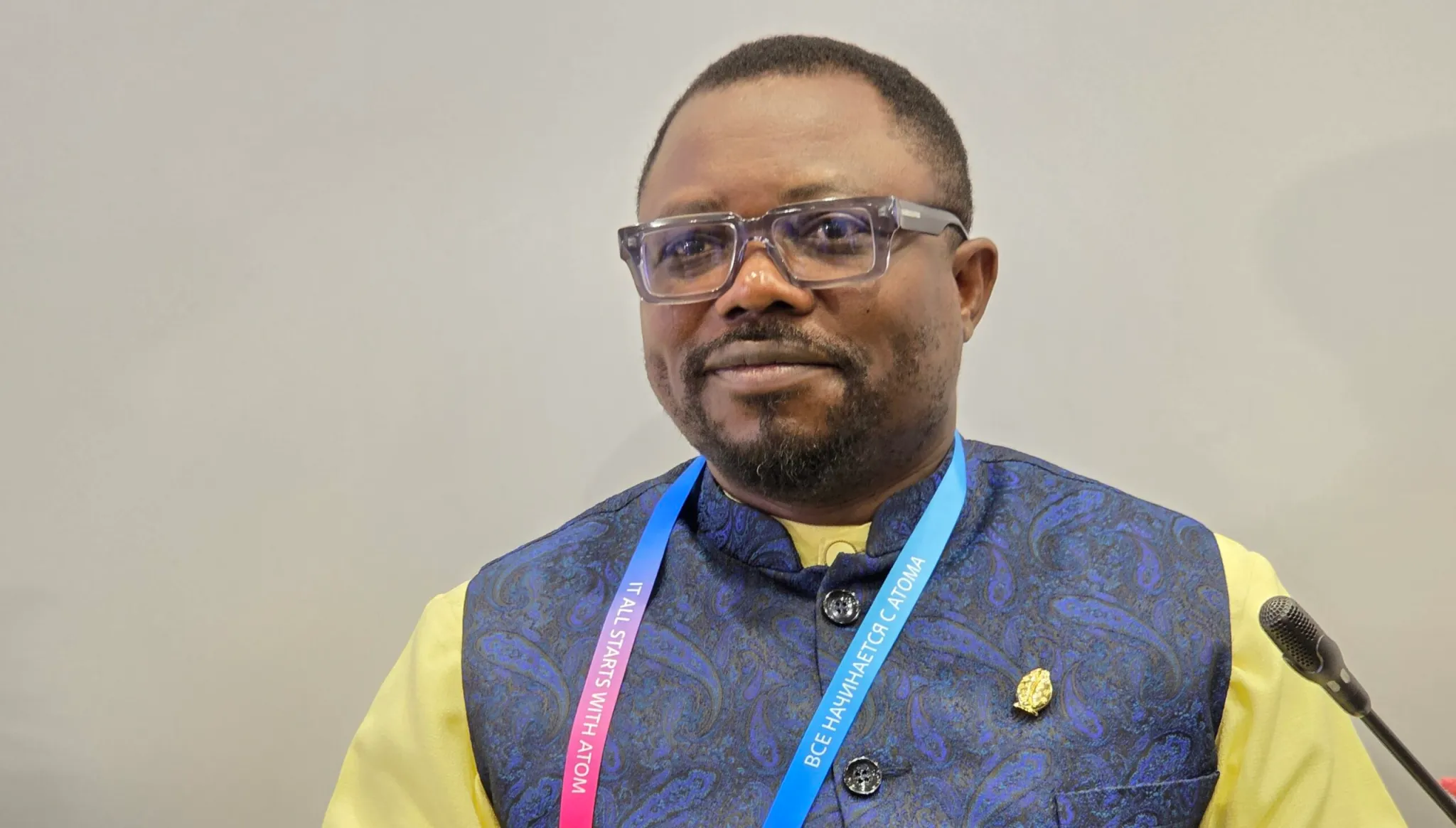Ghana is considering the deployment of Russia’s floating nuclear power technology as a temporary solution to meet the country’s growing energy demand while it awaits the construction of its first nuclear power plant.
The Deputy Director of Nuclear and Alternative Energy at the Ministry of Energy and Green Transition, Dr. Robert Sogbaji, disclosed this on the sidelines of the World Atomic Week in Moscow.
He explained that adopting the floating nuclear technology will provide a reliable and sustainable power supply in the short to medium term, helping Ghana address current electricity challenges.
Dr. Sogbaji added that Ghana’s plan to adopt floating nuclear power technology will be pursued through a private sector partnership and will operate as an Independent Power Producer (IPP).
“We are already having a floating ship that is the Karpowership in Ghana, so we are not new to producing electricity from a ship. As we have a Nuclear Regulatory Authority and the Environmental Protection Agency, they have their regulations, and that is what we are going to follow, with guidance from the International Atomic Energy Agency as well as the National Regulator of ROSATOM. This is going to be adopted to make sure that, in terms of regulation, we dot our i’s and cross our t’s.”
“I think for now it will be much cheaper, as we are looking for a PPP. For the private sector, you have to have a funding mechanism—not to own the ship but to be interested in the power that is generated. This is becoming more like an IPP with a government interest and a PPP partnership to make sure that the funding and financing are okay. Because when you look at nuclear, coming in as an IPP will have its own regulatory issues, but being owned by the government will mean that there is a lot of funding that has to go in there, which may end up making the power too expensive,” he explained.
The CEO of the Regional Office for Central and South Africa for ROSATOM International Network, Ryan Collyer, says Ghana’s decision to adopt floating nuclear power is a crucial step toward achieving a sustainable and affordable energy future.
“At this point in time, the current structure that we envisage is likely to be around selling the power. In that way, there are not really large upfront investments required by our clients, and we believe that shortens the time in which nuclear energy can be delivered to a country like Ghana,” he said. “Even though there are other varied options available for nuclear development in Ghana, the FPU is the preferred model Rosatom is looking at at the moment. I also still believe that Ghana will embark on a large-scale nuclear power project, and I think this is a very good first step in terms of achieving that,” Mr. Collyer stated.
A Floating Nuclear Power Plant is a mobile, self-contained nuclear power station built on a ship or barge.
It operates like a conventional nuclear plant but is mounted on a floating platform, allowing it to be transported and connected to the national grid wherever it is needed.
The technology uses small nuclear reactors, often Small Modular Reactors (SMRs), to produce electricity and heat. Once deployed near a coastal area or port, the floating plant is anchored and connected to the local grid through undersea transmission cables.
The key advantages of floating nuclear plants include rapid deployment, mobility, reliable power supply, and minimal land requirements.
They can be built and commissioned faster than traditional plants and relocated based on demand, making them ideal for coastal and remote areas.
Russia is currently the global leader in this field. For Ghana, exploring floating nuclear technology represents a strategic step in diversifying the country’s energy mix and bridging the power supply gap.






